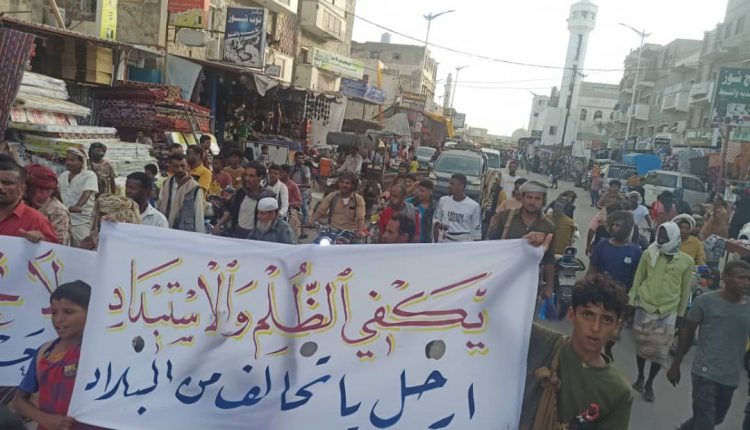ADEN, Nov. 03 (YPA) – The coalition-funded Presidential Leadership Council and its government in Aden city made on Monday a decision to suddenly raise the customs exchange rate from 700 to 1400 riyals, which equals $5.87, threatening to push prices skyrocketing and deepen the economic and humanitarian crisis.
The decision triggered a massive surge in the prices of all imported goods, including basic commodities, food, medicine, fuel, spare parts, and services.
This historic jump in the customs tariff would be a devastating blow to citizens already suffering from catastrophic economic and living conditions, pushing household budgets to the brink of collapse.
Economic experts described the decision as ill-conceived, reflecting a lack of genuine reform vision for the collapsing economy in coalition-controlled areas. They indicated that it would place the greatest burden on citizens to address structural financial crises.
They emphasized that raising the customs exchange rate without prior and decisive measures to control revenues, prevent the outflow of funds abroad, and combat financial and administrative corruption may be a misguided remedy that would exacerbate instability rather than resolve it.
Some experts and local activists in Aden and the rest of the southern provinces have been demanding that the coalition-backed government immediately reverse this “irresponsible” decision and begin genuine reform, pointing out that any real economic reform will begin first and foremost with controlling and managing public resources transparently and honestly, and stopping waste, in additional to managing the financial resources of institutions instead of dividing them among leaders, before resorting to any harsh financial measures that burden the poor and middle class and push them into the clutches of extreme poverty.
Citizens now are awaiting the repercussions of this shocking decision, at a time when Aden and the rest of the southern provinces are being experienced one of their most difficult economic periods, while the government seems to be exacerbating the situation, having failed to pay employee salaries for the fifth consecutive month.
AA


